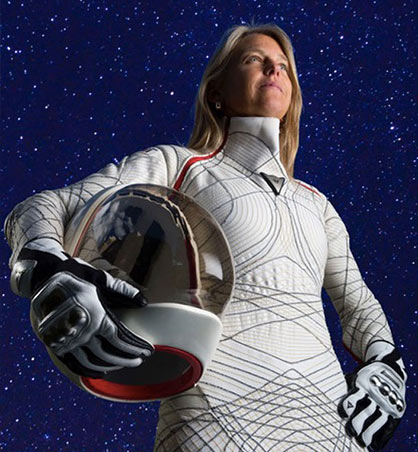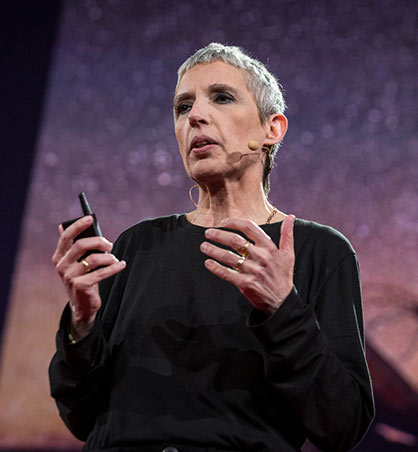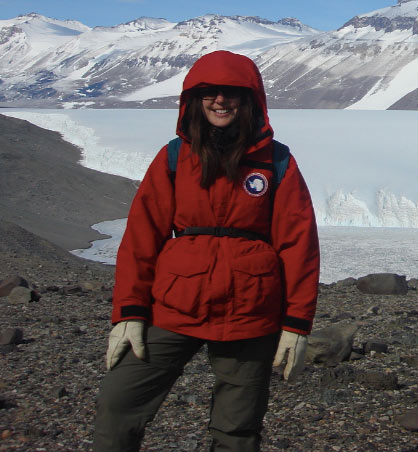Human Exploration to Mars: Becoming Interplanetary

Tags: SETI Talks, Outreach, Mars, Planetary Exploration, Solar System
Time: Thursday, Sep 13, 2018 -
Location: SRI International, 333 Ravenswood Ave, Menlo Park, CA 94025
SETI Talks are presented by the SETI Institute and SRI International.
Panelists Dava Newman, Nathalie Cabrol, Jennifer Heldmann, and Jaya Bajpayee will examine what researchers are doing right now that will make it possible to put people on Mars in the future.
Humanity is becoming interplanetary. Recent space science missions to Pluto and Jupiter, the discovery of thousands of exoplanets, and orbital missions to monitor Spaceship Earth offer lessons on how we will get to the Red Planet.
Space agencies, academia and industry are working right now on the missions that will get “boots on Mars” in the 2030s. We are testing advanced technologies for the next giant leaps of exploration. From solar electric propulsion to cutting-edge life support systems to the first crops grown in space, the journey to Mars is already unfolding in tangible ways.
This month’s panel will review a three-stage plan – from missions close to Earth involving commercial partners and the International Space Station, advancing to missions in Earth–Moon orbit or deep space, and finally moving on to Mars, where explorers will be practically independent from spaceship Earth. The innovation required to for humanity to become interplanetary cuts across science, exploration, and technology. The panelists will discuss the search for life, past and present, on Mars and research in analog environments on Earth.
Fundamentally, education, knowledge, and access are the keys to exploring our Solar System, Spaceship Earth, and ourselves. The presentation will conclude with an inclusive message on STEAMD (science-technology-engineering-arts-math-design) about changing the conversation to include everyone: the artists, designers, poets, and makers. We are all astronauts on Spaceship Earth!
Eleanor Roosevelt once said that the “future belongs to those who believe in the beauty of their dreams.”

Dava Newman is the Apollo Professor of Astronautics and Engineering at the Massachusetts Institute of Technology (MIT) in Cambridge, MA. She previously served as Deputy Administrator of NASA under the Obama administration, from May 2015 until January 2017. Dava’s research has included space flight experiments, ground-based simulations, and mathematical modeling. Some of her recent projects have focused on space suit design, dynamics and control of astronaut motion, mission analysis and engineering systems design, and policy analysis. Dava is perhaps best known for her work on the “Bio-Suit,” a space activity suit that provides pressure by tension in the suit’s textile weave instead of with pressurized gas, resulting in greater comfort and ease of movement for astronauts wearing the suit. She has published extensively and holds a Ph.D. in aerospace biomedical engineering from MIT, M.S. degrees in aerospace engineering and technology and policy from MIT, and a B.S. in aerospace engineering from the University of Notre Dame.

Nathalie Cabrol is an astrobiologist and the Director of SETI Institute Carl Sagan Center for Research, where she spearheads a new multidisciplinary roadmap to bridge astrobiology and SETI. She has a background in planetary and environmental sciences and astrobiology. Her research focuses on the exploration of habitability and life beyond Earth. She counts over 470 peer-reviewed publications and proceedings of professional conferences and is the author of three books and 10 chapters of books on the subject of planetary science and exploration, astrobiology, and terrestrial extreme environments. Nathalie is the recipient of NASA and other research awards. She is a Carey Fellow (Wings Worldquest Women of Discovery - Air and Space, 2007), and a Fellow of the California Academy of Sciences since 2016. She was honored to present the Sagan Lecture at AGU in December 2016.

Dr. Jennifer Heldmann is currently a research scientist in the Division of Space Sciences and Astrobiology at NASA Ames Research Center. She also supports NASA Headquarters as a Program Officer within the Planetary Science Division. She has a Bachelor’s degree in Astrogeophysics from Colgate University, a Master’s degree in Space Studies with a Minor in Geology, and a Ph.D. in Planetary Science from the University of Colorado at Boulder. Heldmann’s scientific research interests focus on studies of the Moon and Mars. Her Mars research focuses on studies of recent water on the Red Planet through spacecraft data analysis, numerical modeling, and fieldwork in Mars-analog environments such as the Outback of Australia, the Canadian High Arctic, the Atacama Desert, Spitsbergen, the Mojave Desert, Iceland, US Southwest, and Antarctica. Water is especially important to understand climate, geology, and the potential for past and/or present life on Mars. She is also involved in planning for the future human exploration of Mars and has served on several MEPAG (Mars Exploration Program Analysis Group) special action teams for defining precursor activities needed to enable future human exploration of Mars. Heldmann has written numerous scientific papers and book chapters and is the recipient of multiple NASA Achievement Awards including a NASA Headquarters Special Act Award, NASA Ames Honor Award, multiple NASA Group Achievement Awards, and the NASA Exceptional Scientific Achievement Medal (2015). She was inducted into the U.S. Space Camp Hall of Fame in 2017. She is committed to education and public outreach and is keen to inspire the next generation of scientists and explorers by sharing the excitement of Solar System exploration with students, teachers, and the general public whenever possible.

Ms. Jaya Bajpayee is the Deputy Director of Science at NASA’s Ames Research Center at Moffett Field, CA. Starting her career as a Range Safety Officer at NASA GSFC’s Wallops Flight Facility, Jaya transitioned to project management at Goddard’s Greenbelt facility. After delivering the Geosynchronous Operational Environment Satellite (GOES)-N Solar X-Ray Imager within cost and schedule, she moved on to positions of greater responsibility.In 2008, Jaya became a Program Executive at NASA HQ Astrophysics Division, where she managed 14 operating missions and established NASA’s Physics of the Cosmos Program. In 2015, she served as Acting Deputy Director of Space Flight Systems Directorate at GRC, providing day-to-day management of nearly 70 projects in formulation and development for Science, Human Exploration and Operations and Space Technology Mission Directorates. In 2016, Jaya served as a Special Assistant to NASA’s Mission Support Directorate at HQ.Her collaborative, proactive style makes her a good fit with NASA.
Jaya received her B.S. in electrical engineering from the University of Pittsburgh, her M.S. in space systems engineering from Delft Technical University in the Netherlands, and is a graduate of the Senior Executive Service Candidate Development Program. She takes every opportunity to inspire students to pursue STEM careers. Since her childhood in India, she has witnessed first hand how education improves the standard of living, achieves gender parity and reduces racial, cultural and religious barriers.. In her free time, Jaya enjoys traveling, photography and spending time with her nieces and nephews.
NOTE: Due to the popularity of the SETI Talks events, tickets are often sold out. If you register to attend, then realize you will be unable to come, please let us know as we will then be able to open up the seats for others. You can email us at webmaster@seti.org. Thank You!
SETI Talks are held at the SRI Conference Center at 333 Ravenswood Avenue. Please enter from Middlefield Road and follow the signs.
